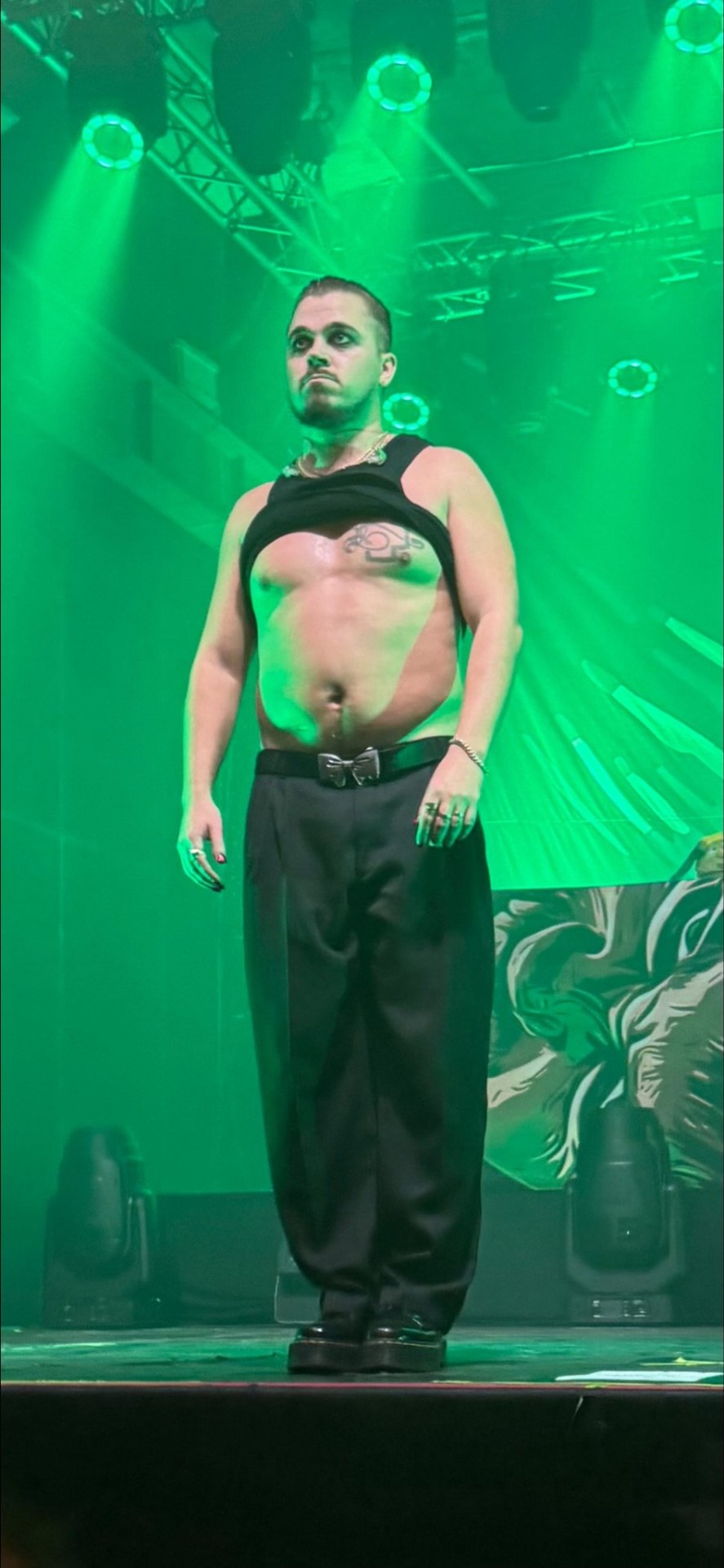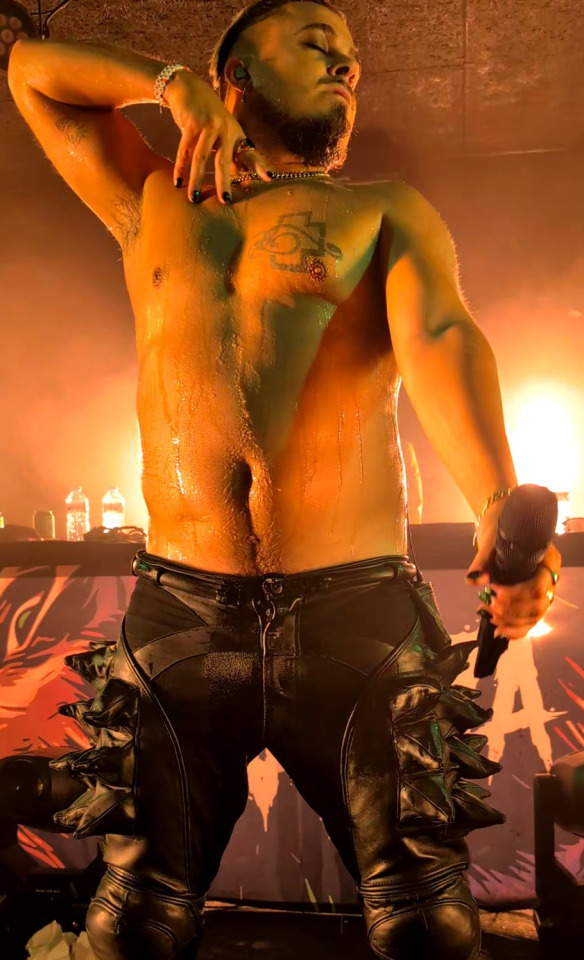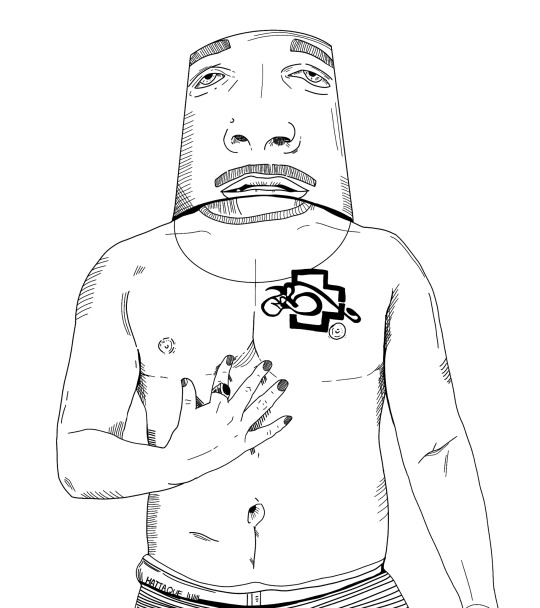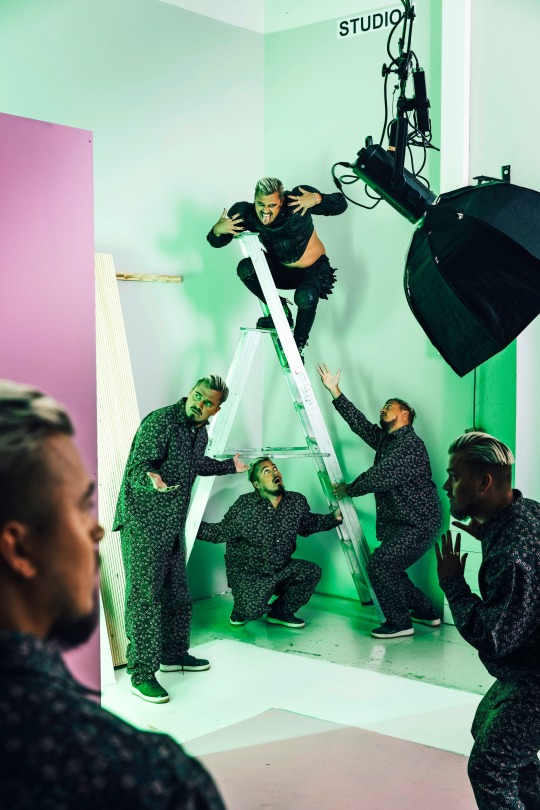Text

his voice was beautiful and much less autotuned at the Allihopa tour ♥️
28 notes
·
View notes
Text

missing him
22 notes
·
View notes
Text


he's a dance boy, he's a disco boy
33 notes
·
View notes
Text


Thank you everyone who came to chat in the Allihopa tour, it was amazing and I will miss the gigs so, so much ♥️
38 notes
·
View notes
Text
with the podcast in mind and gigs coming up, can we as fans be respectful and not approach the crew in public or on the boat?
the last time they had a boat gig they were so cornered they swore off ever doing another one, in frustration
you don't need that selfie, you don't need that chat
but they will probably need to relax around a table or go for walks ♥️
I know this request probably won't stop many, but.. maybe it could stop you?
9 notes
·
View notes
Text

dance dance ❤️
25 notes
·
View notes
Text

I see a lot of mocking comments and tags aimed my way, saying objectification isn't bad, or obtusely misinterpreting my intent.
Some go so far as to say Käärijä was playing along and having fun with the chants for him to show his tits. The chants went on for very long. He did not play along. He was clearly disturbed and pissed.
This is a picture snapped by a heartbroken fan showing his humiliation as he relented to stop the awkwardness. The fan wishes to be anonymous for obvious reasons.
I sometimes wish I had remained more anonymous. The bullies know what I look like, my IG stories have been interesting to them lately. I do worry about the Allihopa tour, I fear I will be ostracized for having spoken out and demanding more respect for an artist we love.
I wish it wasn't like this. I hope the people who chanted, who bully, will reconsider and let love back in.
4 notes
·
View notes
Text
showing boobs and pötsi is not objectification ♥️
objectification is an insane hyper focus on a sexualized body part, a reduction of the whole
it removes the feeling of respect and turns them into an object you can treat poorly - like chant for them to show tits, describe with slurs, give the wrong pronouns to, or touch without consent

all of which has happened.
15 notes
·
View notes
Text

77 notes
·
View notes
Text

Sorry, I needed to do something fluffy, snuggly and cuddly from my daydreams this time. ❤️ Some pieces are just too hard to let go of and call “done,” and this was one of them.
368 notes
·
View notes
Text

I’ve heard you can get a free bucket due to People’s Champion release and my mind went WILD
112 notes
·
View notes
Text
i added my thoughts to the takavoltti lyrical analysis here but today i want to talk about why i think takavoltti is one of käärijä's most finnish songs ever.
this got a bit long, so just so you know what to expect going in: what i mean by most finnish is that there are references and tone of voice that are very specific to finland, there is complex use of the finnish language AND there are melodic/musical choices in the song that sound very finnish to me.
okay, here goes.
the dialogue that opens the song is already a sort of key moment to this finnishness of it all. when he says "emmä tiedä, kolisee jos kolisee, mut mun on pakko sit koittaa vetää tosi matalalla" he is doing a bit of a voice but more than that, he is talking in a way that is not quite his. his inflection, the rhythm, those are not natural to him or his dialect. you can hear it particularly when he says "koittaa vetää tosi matalalla". i don't know if it's at all easy to hear if you're not finnish, but it's not.. a serious voice or tone. the other two voices, one of them is modified to be high and the other talks like a sports announcer. the whole scene is quite comedic and it's a very specific genre of comedy that is very finnish indeed. it's also the type of thing he has been doing since always. (EDIT: OKEI MORE CONTEXT IN A REBLOG HERE)
funnily enough, you guys know köpi kallio now, the therapist in skit and autiomaa video? yeah köpi and his long time partner in crime viki are good examples of this type of humour i would say. they have their own podcast/show called viki ja köpi show but before that they were radio hosts and have been working together for ten years. the character voices and the whole vibe of the scene in the beginning of the song is very viki ja köpi to me, very ylex type comedy (yes ylex the radio station who did the ruisrock interview who still isn't back from the war).
and the small comedy bits stay in there through out the song, and they continue to have the same delivery instantly recognisable as comedic.
and that isn't to say the subject matter can't be serious. i think, again, this is something that feels inherently finnish to me. other finnish people feel free to chime in because this is hard to explain, but our culture is one where coping through making light of things is quite normal. and our sense of humour tends to be on the darker side, at least if you compare it to the american style of comedy that has taken over globally. so to make a song about there being too many demands on you and how you have a problem with setting boundaries and agreeing to insane shit, but to do it by interjecting the song with jokes just idk.. it sits in our culture lmao.
i honestly don't know how to explain this better, but quite dark comedic elements like this (after all he gets properly fucked up in the stunts it seems) in a song with a serious subject matter is something we've been doing for decades in this country (juice leskinen, for example) and it is something so loved by finnish people. we love a song that is just fucked up on multiple levels. käärijä is just adding his own style to this cultural history.
okay, onto the language.
the verse opens with "tekevälle sattuu" which is a finnish proverb.
quick finnish lesson: the word sattua in finnish means both to hurt and to happen. the word tehdä means to do but tehdä kipeää means hurting. like.. now that i think about it tämä tekee kipeää = this is doing (me a) hurt is valid and correct finnish lmao.
tekevälle sattuu, the proverb, actually means "things happen to those who do" but he is playing with the different meanings here, because he goes on to say "ain sattuu ku tekee" which can both mean "things always happen when you do" or it can mean "it always hurts when you do". then he goes on to say "ku tekee, ku kipee, ni kipeetä tekee" which is once again playing with words, because kipee here means both pain but also being sick. "ku tekee, ku kipee" would translate as "when you do as if you're sick" and "kipeetä tekee" means that it hurts.
so to recap (i'm not trying to provide a smooth translation, but highlight his wordplay:
tekevälle sattuu = things/pain happen to those who do [things]
ain sattuu ku tekee = shit happens/you get hurt when you do [things]
ku tekee, ku kipee, ni kipeetä tekee = when you do [things] like you're sick [in the head], you get hurt
so this is all to say two things: he's using the finnish language in a very clever way that really only becomes clear if you know the language and all of these idioms and proverbs. and also that he is very good at what he does. it has taken me four paragraphs to explain 13 words.
and he doesn't even end there. "oon yllytyshullu, ain hulluksi yllyn" is more play on words. jesus, jere. okay guys, stay with me.
yllytyshullu i explained in my previous analysis, but recap: yllytys means incitement and hullu means crazy. yllytyshullu is someone who does crazy shit when prompted.
"ain hulluksi yllyn" here he is using the word yltyä which is the same root as yllytys, but yltyä means usually more like.. to intensify. (for example: sade yltyy = the rain is getting heavier, or tuuli yltyy = the wind is picking up)
so to say hulluksi yllyn, he's saying like.. i let myself be incited and/or i always take it to the max, to the point of crazy.
and then he uses very clever rhyming words: "ja tää hullunmylly on kylmempi kylpy". hullu means crazy, mylly means mill, hullunmylly is basically a hullabaloo.
as you can tell, all of this is like bordering on impossible to translate accurately into a smooth translation. and that's just the first verse, but i'd be here all night if i explained the whole entire song 😭
and this to me is a very clear sign that no matter what sort of an audience he has internationally, he's not compromising on his language. and i find that admirable and, as a finnish person, very comforting too. this song is sort of reassuring, like he is reinserting himself very firmly into finnish culture, with the language and the comedy that do not translate very well.
and if you look at the pre-chorus and chorus, the specific references keep coming: calling him kärtsä (finnish people have a lot of nicknames for him), "hyppää kybäst pommi" the slang use of kybä to mean ten meters, he mentions duudsonit (the dudesons) and he mentions jorvi hospital. all of these feel like he is signalling to a very finnish audience. (also "oon syypää sun hymyyn" could count as a cheek reference, cheek used to be like the biggest rapper in finland).
okay, time for melody and music speak. i only have one simple point here: melodically and musically speaking that has to be the most suomi iskelmä chorus i've heard from him. ever.
you could take that melody and insert it as the chorus to like any song on iskelmä radio. iskelmä is a finnish schlager music genre. kind of impossible to describe but something that finnish people will instantly recognise. the opening, with the piano synth could also open an iskelmä song.
very suomi, very iskelmä.
so.
all of this is why i think takavoltti is about as finnish as it gets. a suomi iskelmä about having serious issues with boundaries that uses clever finnish and paints a comedic picture of a banged up black-eyed käärijä who has dislocated his shoulder but is still showing thumbs up is like.. so much finnish condensed into three and a half minutes.
i know not everyone thinks the song is hilarious but i do. it's both hilarious and very serious and that's how we like it here.
and of course the fact that there is an "ai vittu" in there. we like that too.
88 notes
·
View notes
Text
#think about this before you ask for yours
Heartbreaking
92 notes
·
View notes
Text

I live for moments like these - the dopamine rush is so addictive when you capture everything just right. I absolutely love this hobby. 💚💚💚
Birmingham, 24.10.2024
268 notes
·
View notes
Text








Käärijä for Apu Magazine 30.10.2024
Photos by Hannes Paananen
754 notes
·
View notes

